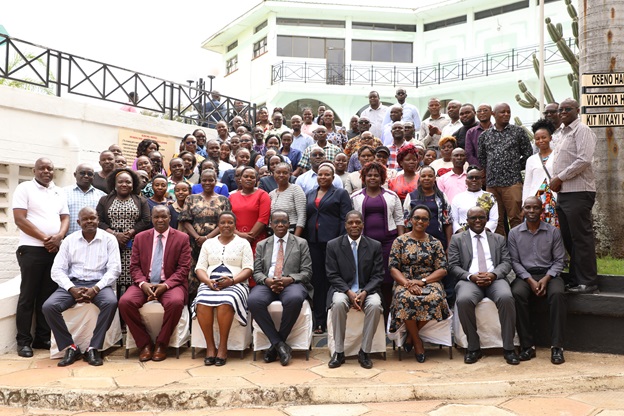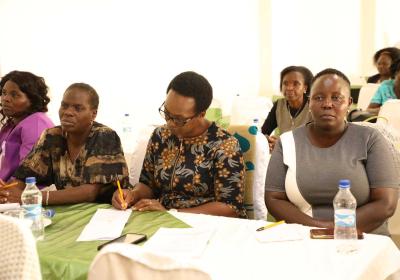Masinde Muliro University of Science and Technology (MMUST) has successfully conducted skills, retirement, integrity, and culture change training for its staff in grade six and seven. The key focus of the training was professional development for better service delivery. The two-day workshop which was held from 14th to 15th November, 2024, took place at Kisumu Hotel. The event was organized by the Office of the Registrar (Administration) led by the Registrar Administration, Dr. Eglay Tsuma in conjunction with the Office of the Deputy Vice Chancellor- Administration and Finance, and coordinated by the Senior Assistant Registrar (Training & Development), Mr. Gregory Muluta.
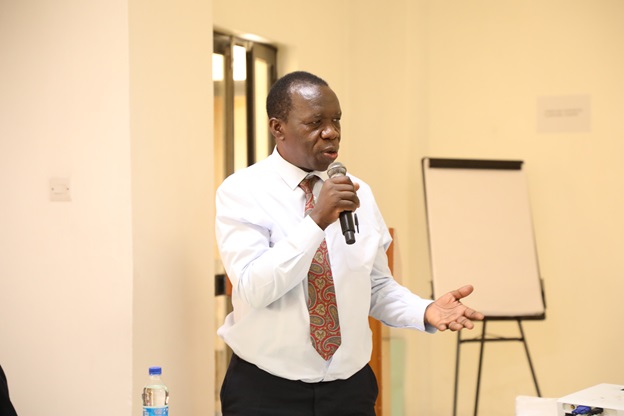
The Vice Chancellor- Prof. Solomon Shibairo addressing participants.
In his opening remarks, the Vice Chancellor- Prof. Solomon Shibairo emphasized the importance of continuous professional development in shaping the future of MMUST. He noted that the success of the University is directly tied to the growth and well-being of its staff.
“At MMUST, we believe that investing in such training is key to maintaining academic excellence and institutional success. This initiative is just one of the many strategies we have adopted to support our staff to develop the skills, knowledge, and attitude necessary to excel in today’s fast-changing higher education environment,” said Prof. Shibairo.
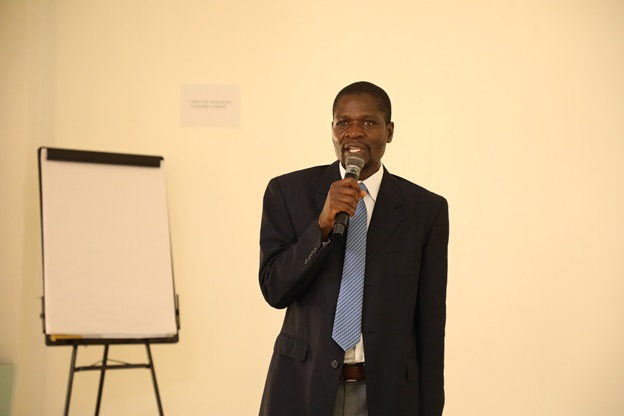
The Acting Deputy Vice-Chancellor (Administration and Finance), Prof. Maurice Omollo speaks at the event.
The Acting Deputy Vice-Chancellor (Administration and Finance), Prof. Maurice Omollo reiterated the VC saying that capacity building will be conducted for staff of all cadres to ensure efficient service delivery.
Thanking the University Management for supporting and approving the training Dr. Tsuma stated that this initiative is part of MMUST’s ongoing efforts to develop a well-rounded workforce capable of adapting to the rapidly changing educational and societal landscape.
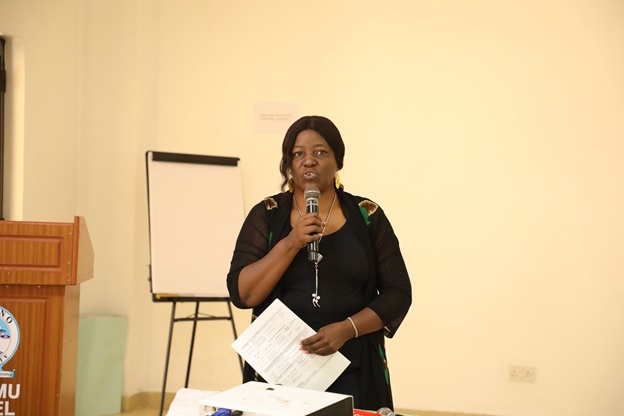
The Registrar (Administration) led by the Registrar Administration, Dr. Eglay Tsuma gives her remarks at the training.
Some of the topics covered during the training included: ‘MMUST Vision, Mission & Service Delivery Charter’ by Mr. Josephat Shigogodi; ‘Organization Culture and Behaviour Change’ as well as ‘Occupation, Health and Safety’ by Prof. Robert Egessa; ‘Labour Laws’ by Ms. Lilian Kundu; ‘Corruption Detection and Prevention in the Public Sector’ as well as ‘Public Service Ethics and Integrity’ by Dr. Evans Oruta; ‘Staff Welfare Issues’ by Bernard Ooko; ‘Public Relations & Customer Care Skills’ and ‘Communication Skills and Protocol Etiquette’ by Dr. Lydia Anyonje; ‘Stress Management & Counselling Skills and Time Management & Critical Thinking Skills’ by Prof. Kenneth Otieno; ‘Psychological Planning for Retirement & Financial Management’ by CPA Jared Rading; ‘Employee Productivity and Performance Management’ by Mr. Henry Wati; ‘Career Progression, Training and Placement’ by Mr. Silas Magonya; ‘Road Safety/ Safe Road Use’ by Mr. Wilson Silali and ‘Team Building Skills’ by Dr. Issa Kweyu.
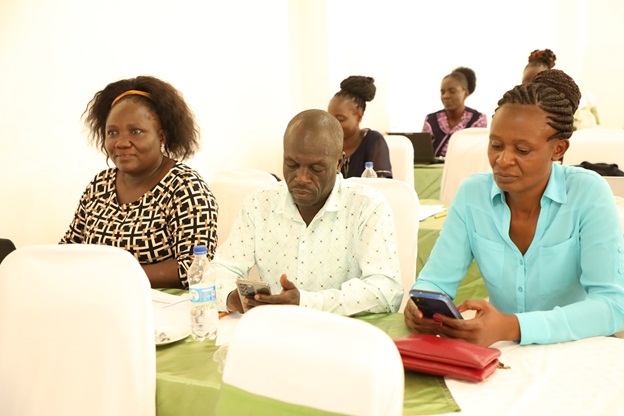
From left: The Director-DCCM-Dr. Lydia Anyonje, Mr. Lawrence Kibor and Ms. Selina Wendo.
Some of the key ‘take-home’ lessons that emerged during the training included the importance of a positive organizational culture, the right etiquette and communication at the workplace, zero corruption and staff welfare issues. Staff members expressed appreciation for the opportunity to learn new skills and gain insights that will enhance their performance both at work and in their personal lives. The training is part of the MMUST’s broader strategy to strengthen institutional capacity and foster an environment conducive to learning, collaboration, and innovation.
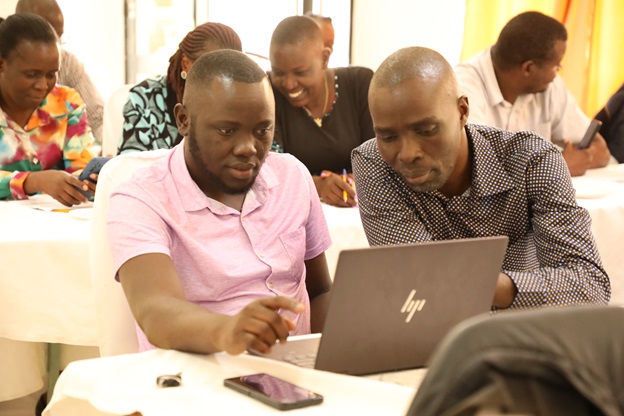
Mr. Phelix Ajuoga and Mr. Benard Ooko at the training.
Session chairpersons and rapporteurs of the well-organized training included; Ms. Mildred Kagai, Ms. Lilian Andeyo, Ms. Ruth Omega, Mr. Mervyn Odeo, Mr. Livingstone Eshitika, Mr. Phelix Ajuoga, Ms. Gladys Wangui, Mr. Douglas Shimonyere, Mr. Victor Malimu and Ms. Jean Kulecho.
Clearly, MMUST is on the right trajectory regarding modern staff capacity building, culture change and effective service delivery.
By Lydia Anyonje and Linet Owuor




